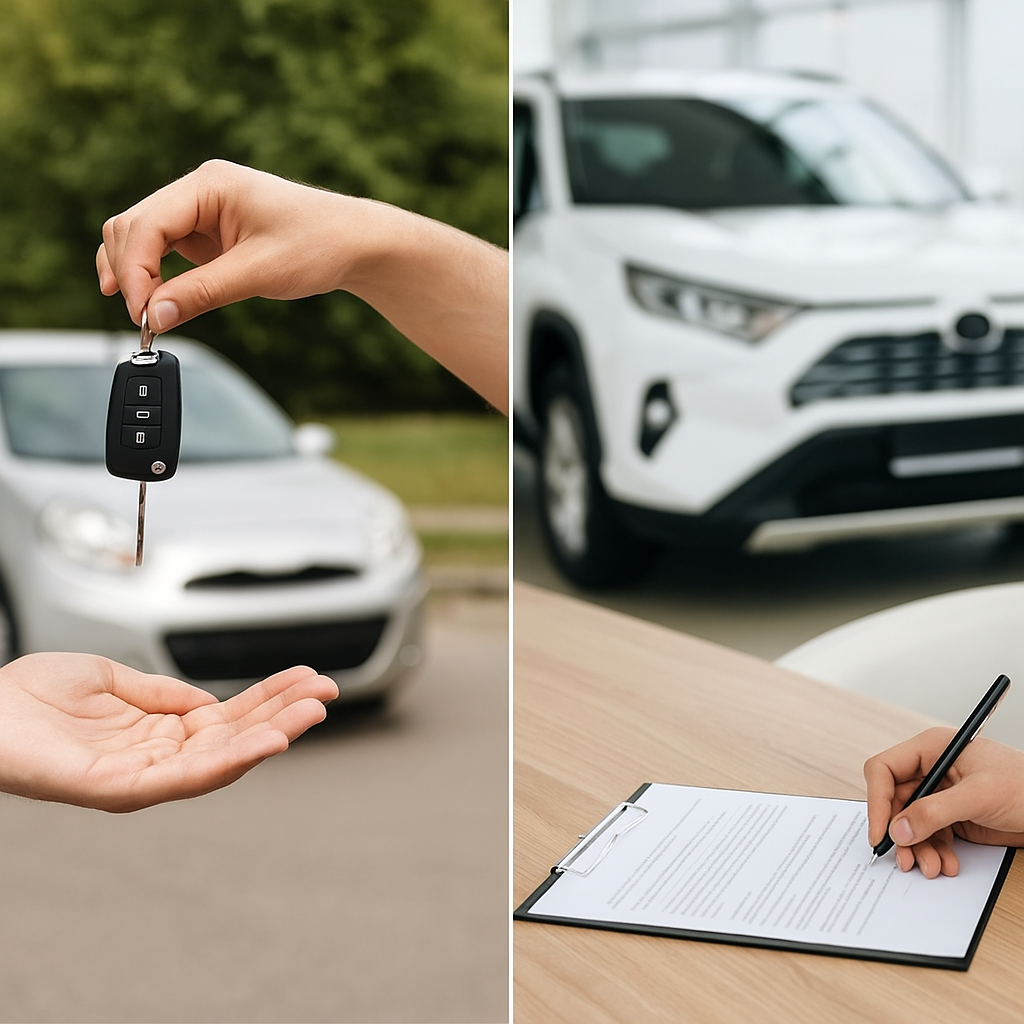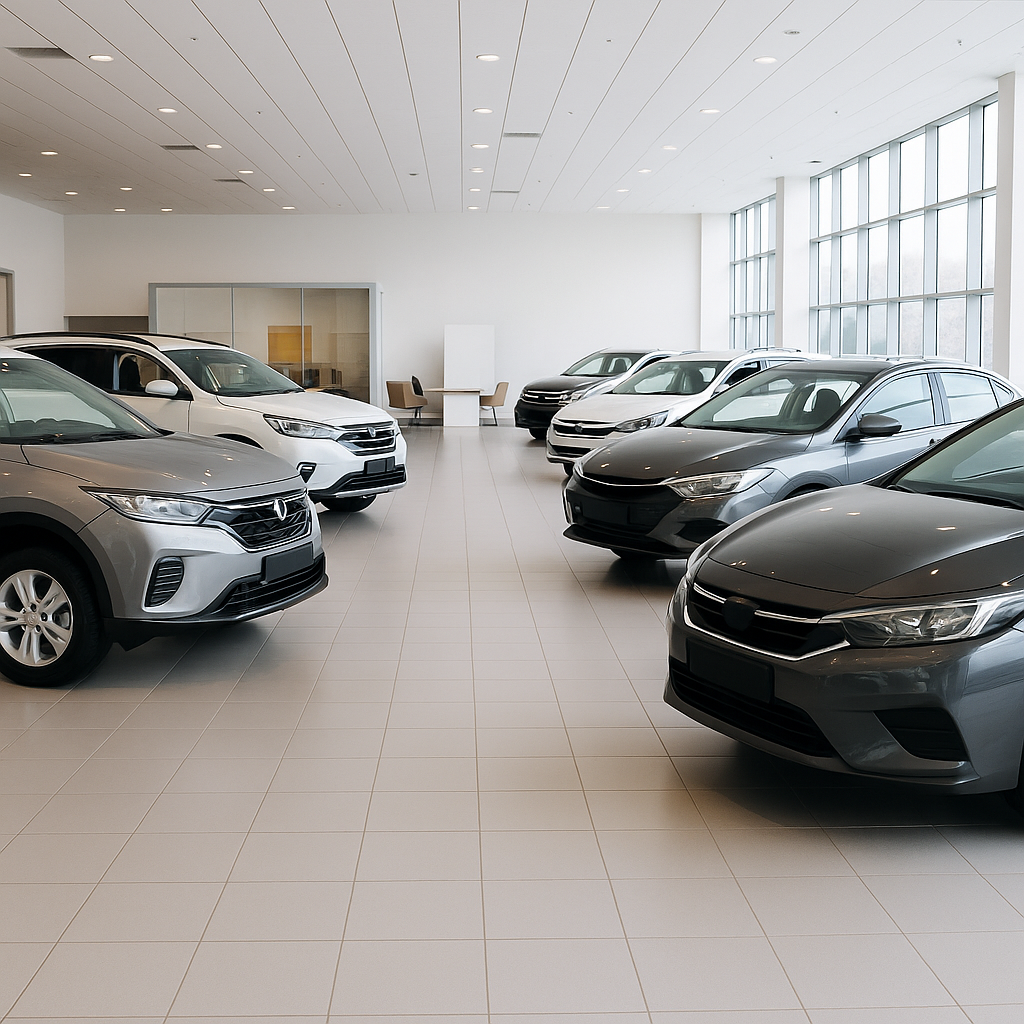Private seller or dealership: where is it more advantageous to buy a car

Private seller or dealership: where is it more advantageous to buy a car
When it comes time to buy a car, the first question for everyone is: where to buy — from a private owner or at a dealership. At first glance the answer seems obvious: private sellers are cheaper, dealerships are more reliable. In reality it’s a bit more complicated. Experienced buyers know that much depends on goals, budget and even the country where the purchase is made. I’ve tried both options and learned there’s no perfect solution — only the option that best fits you.
Buying a car from a private seller
Advantages of a deal with a private seller
The main advantage is price. Private sellers don’t include commission, premises rental or advertising, so the cost is often 10–20% lower than at a dealership. Also, communication is direct without intermediaries. You can ask any questions, learn how the car was serviced, where repairs were done, and which parts were replaced. Sometimes sellers truly took care of their cars, kept all receipts and can show the full service history. That rare but pleasant case gives the buyer a feeling of honesty on both sides.
Risks when buying from a private person
However, a direct deal always carries risk. No guarantees, no obligations. A private seller may not disclose all problems, especially if they are not obvious. You may encounter rolled-back mileage, hidden accident damage, or legal restrictions. You will need to check everything yourself: documents, VIN, condition of the body, engine and suspension. There are also cases when a car is sold with a lien or seizure, and the new owner finds out too late. Buying from a private seller therefore requires attention and technical knowledge.
Buying a car at a dealership

Main advantages of buying at a dealership
Buying through a dealership or dealer feels calmer and safer. The car undergoes a pre-sale inspection, often has a warranty for several months, and documents are processed officially. For many buyers this is decisive — there is no risk of being deceived, especially if the dealership works with trusted platforms and insurers. In addition, dealerships offer extra services: installment plans, trade-in, arranging insurance and inspections on site. Everything is convenient, fast and without unnecessary paperwork.
Drawbacks of buying through a dealership
The main downside is price. A dealership adds its margin and sometimes hidden fees. The final cost can be above market. Also, not all dealers are equally honest. In some places dealerships hide technical problems with cosmetic repairs or roll back mileage before sale. So even with official outlets you should check reputation, read reviews and study the contract carefully before signing.
How to determine which option is better for you?
Consider your budget and purchase goals
If you are on a tight budget and ready to spend time checking the car, buying from a private person can be a good choice. You get a lower price and the chance to talk directly with the owner. However, if peace of mind and guarantees matter more, choose a dealership, especially for an expensive or newer car. Buying through an official dealer gives more confidence in the transaction’s cleanliness and legal safety.
The process of inspection matters as much as the seller
Sometimes the difference between a private seller and a dealership comes down to how thoroughly you inspect the car. Even trusted outlets make mistakes, and a private seller can be completely honest. Before buying, get a diagnostic check, request a VIN report and ensure the documents match. It’s better to spend some time and money on checks than to deal with repairs or legal disputes later.
Psychological factor when buying
Personal communication with the owner
From a private seller you can learn more about how the car was used in real life. People who owned a car for a long time often share small details not reflected in reports — fuel consumption quirks, behavior on the highway, maintenance habits. Such communication helps form a real impression, not just judge the appearance.
Dealership atmosphere and confidence in the process
At a dealership everything is organized systematically: documents, payments, guarantees, preparation. Even if it’s not an official dealer, the structure creates a sense of order and safety. The buyer feels protected — and for many that matters more than saving money. Also, if something goes wrong, you can turn to the dealership management or consumer protection authorities.
How to avoid risks in both cases
Do an independent check of the car
No matter where you buy — dealership or private seller — mandatory diagnostics and document checks should be your rule. Many independent services perform a comprehensive technical assessment, history checks and legal clearance. This will save you from unpleasant surprises and save money in the long run.

Read the contract and terms of the deal carefully
Even at a dealership do not sign documents without reading them fully. Pay attention to clauses related to returns, warranties and the car’s condition. For private sellers, also put everything in writing — it’s your only legal tool. The transaction should be transparent and all parties’ obligations clearly stated in the contract.
Conclusion
Everything depends on the buyer’s priorities
If you want to save money and are willing to take some risk, a private sale can be an excellent option. But if peace of mind, paperwork and after-sale support matter, a dealership is more logical despite the higher price.
Balance between savings and safety
The ideal solution is to find a middle ground. A reputable dealership with a transparent reputation or a private seller willing to provide full information and documents. The key is not to rush, analyze and trust facts rather than emotions. Then the purchase will bring pleasure, not disappointment.
